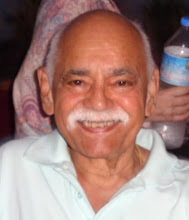
Let’s taste the medicine first. Air X Asia has announced that it is pulling out of Europe at the end of March. They blame the torpid European economy, high oil prices, the European carbon-trading scheme and Britain’s airline passenger duty. All these factors may help justify their withdrawal but some aviation experts expressed doubts about the business viability of the low cost, long haul concept.
The latest Overseas Travel and Tourism report for Quarter 3, 2011 suggests that the travel numbers whilst significantly down since 2008, haven't got any worse since the slump in 2009/10. This despite oil prices, APD, natural disasters and political revolution. Visits abroad by UK residents is 19% lower than in 2008, but we appear to have reached the nadir. Tunisia has made a strong recovery suggesting that tourists have short memories when there's value to be had.
The British Post office conducts a yearly audit of additional holiday costs across 40 destinations. These costs are aggregated for eight items such as a cup of coffee, bottle of lager, packet of Marlboro cigarettes and a three-course meal for two adults in a local restaurant with a bottle of house white wine. All 8 items cost £27.95 in Sri Lanka and at the other extreme, £115.69 in Brisbane Australia.
The drift to value continues, so the countries with a favourable rate of exchange like the Czech republic and Eurozone countries that provide value should do better in 2012.
Recent information from the British Airports Authority, suggests that travel from its airports in December benefited from the clement weather. Passengers using Heathrow in last month increased by 14.7% over the snow affected month of December 2010. Heathrow’s problem is that it has a flight capacity of 480,000 per year and it is already near that figure now.
Recessions end when people realise that the banking crisis, Euro sovereign debt and spending cuts haven't really affected them as individuals. Savers, disenchanted with their returns can be persuaded to spend, and for the cash strapped there are signs that borrowing for holidays is again rising in the USA.

